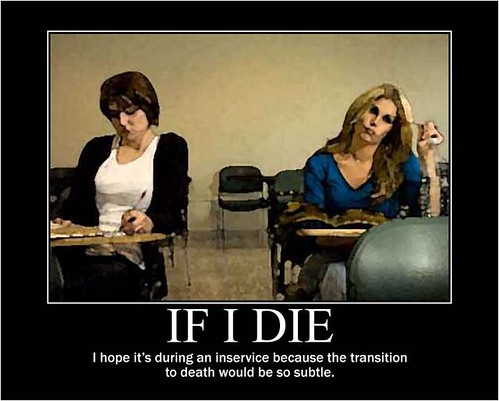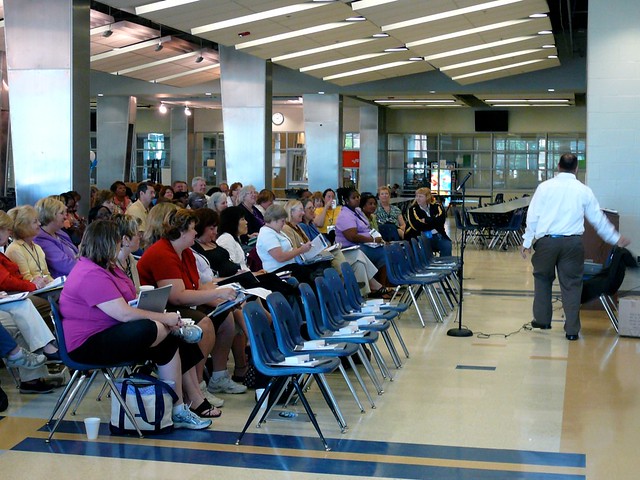I am a self-proclaimed learning junkie. In fact, that is why I became a teacher after years of working in other fields. I came to a clearer realization that for me learning has always been where the jazz is. So took to the concept of teacher as life-long learner or as a kind of master learner from the start. In many ways, I think that my eagerness and desire for professional and personal learning significantly jaundices my view of professional development in the teaching profession, at least in the United States. One of the most exciting things about this course already is the prospects of gleaning a small window into the experiences of others in foreign lands. So to read the offerings from the likes of Jonas and Liz has me hooked even more than I anticipated. I certainly felt a lot of resonance with their posts.
Professional development in nearly every school I have worked is only productive and successful by chance not design. At times, it is well-meaning but haphazard. Other times is not so much professional development as much as it is advancement for an institutional agenda. The time intended to for professional development easily gets hijacked to make way for an administrative program that has little to do with development or learning, supplying a somewhat captive audience for the latest education policy propaganda machine. At its worst, I am always reminded of this image that I think I first saw courtesy of Steve Dembo of Discovery Education.

Yet, my current school occasionally takes a far more interesting turn and will highlight a handful of successful teaching strategies or practices within our own school. So a slate of short presentations or workshops will be presented by peers and we are given a menu options from which we choose which ones we would like to attend.
Just last week, a colleague and I ran a session that was both workshop and presentation about working in a 1:1 computing environment, because we teach journalism class where we outfit ever student with an iPad to use for the semester. We were one of five session options in that time slot and there were three sessions that spanned half a day. Afterwards, I then attended an English department colleague's session on alternative and creative assessment practices. Then I finished with a session on self-assessment and reflection by two of our outstanding art teachers. This is probably the third time we have conducted a professional day this way since I have worked at this school. While the principal selects the options, she hand-picks some sessions and requests proposals for others, it works better than any other professional development that has ever been planned by the school.
A couple of days earlier, I even heard one our more grizzled and tougher veteran teachers comment to another colleague,"These are the best PD days. We actually get to see what kinds of things others are doing in the building."
All that being said, I most wish schools would just kind of stay out of the way more often than not, instead encouraging professional learning that is primarily self-directed or at least self-selected. Professional development is almost always preordained, which may or may not result in learning. Professional learning is the obligation I have to my students, colleagues, and self to expand my knowledge, practice, expertise, and wisdom. I, for one, will always choose professional learning over professional development given the slightest chance. After all, the best experiences I have had are always outside my employer, like becoming involved with the National Writing Project, Flat Classroom Projects, or MOOCs. My desire is that the institution would provide time and money to practicing teachers, thereby fostering master, lifelong learners who teach.











 )
)